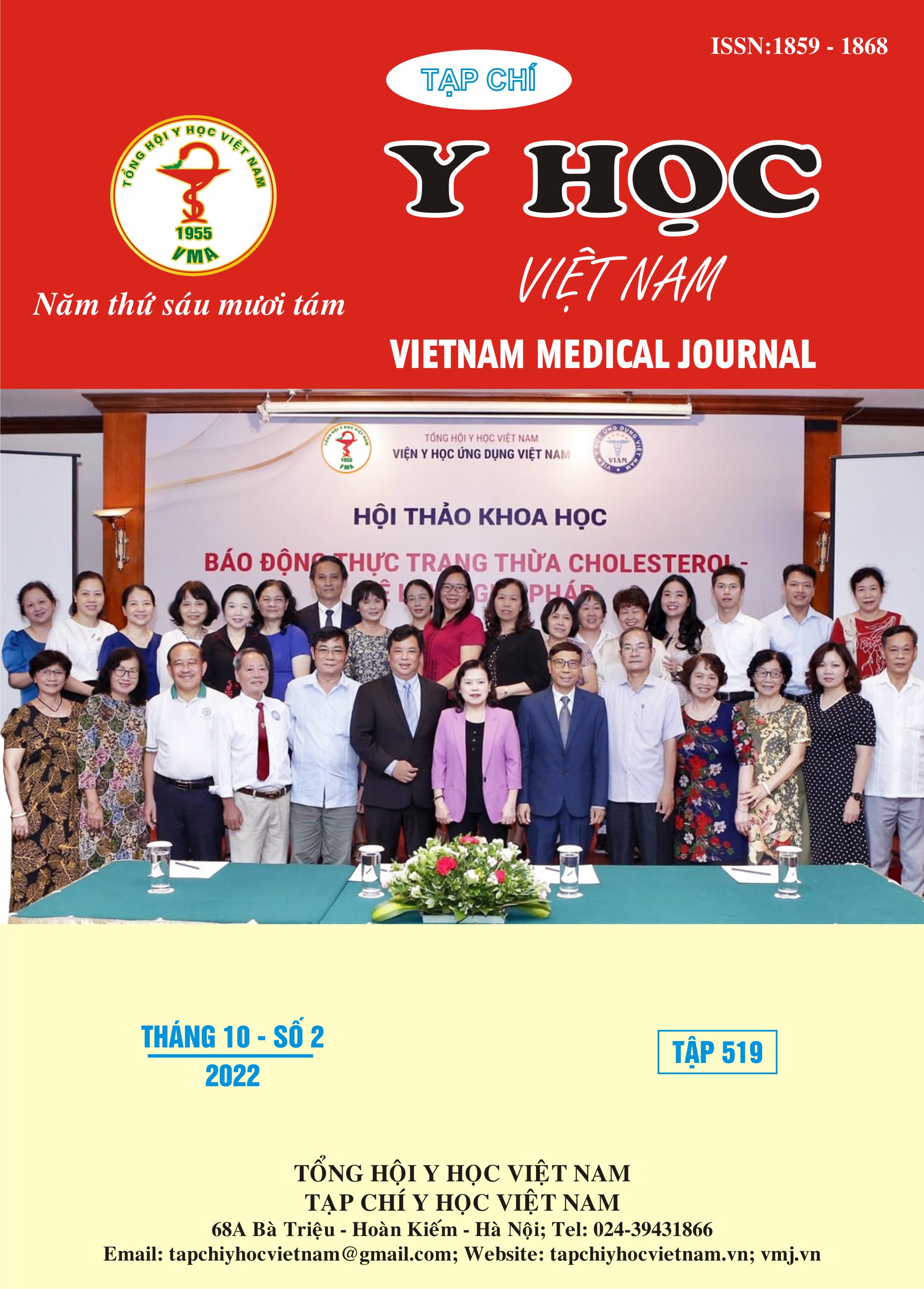IMPACT OF THE COVID-19 ON THE MENTAL HEALTH OF HEALTH STAFF AT SOME CENTERS FOR DISEASE CONTROL IN 4 PROVINCES IN VIETNAM
Main Article Content
Abstract
The study aimed to assess the impact of the COVID-19 pandemic on the mental health of healthcare workers. A cross-sectional study using a set of direct interview questions and an event-scale impact scale - IES-R on 455 subjects who healthcare workers from disease control centers in 4 provinces were participating in the fight against COVID-19 pandemic in 2021.The study results showed that 45,93% of the subjects had mental health problems that needed concern, 8.8% had long-term mental health effects for many years, and 2.8% were diagnosed with the condition. stress state. The average score of “Obsessed” about COVID 19 was the highest (11,34 ± 6,67), followed by “Avoidance” (7,35 ± 5,79) and “Overreaction” (6,86 ± 5,20). The medical staff and staff working in the infectious disease control department often avoid the disease more than the staff working in the infectious disease prevention and control department. Female staff members are at a higher risk of obsession, avoidance, and disease overreactions than men.
Article Details
References
2. Nguyen LH, Drew DA, Graham MS, et al. Risk of COVID-19 among front-line health-care workers and the general community: a prospective cohort study. The Lancet Public Health. 2020;5(9):e475-e483.
3. Pappa S, Ntella V, Giannakas T, Giannakoulis VG, Papoutsi E, Katsaounou P. Prevalence of depression, anxiety, and insomnia among healthcare workers during the COVID-19 pandemic: A systematic review and meta-analysis. Brain, behavior, and immunity. 2020;88:901-907.
4. TS.BS. Nguyễn Thu Hà, Hà BNTH. Ảnh hưởng dịch COVID-19 đến sức khỏe nhân viên Y tế. Cổng thông tin điện tử Bộ Y Tế (MOH). 2021;
5. tế BY. Bộ Y tế: Đánh giá nguy cơ lây nhiễm COVID-19 mỗi ngày cho nhân viên y tế tại khu vực cách ly, điều trị. Cổng thông tin điện tử Bộ Y Tế (MOH). 2021;
6. Wang C, Pan R, Wan X, et al. Immediate psychological responses and associated factors during the initial stage of the 2019 coronavirus disease (COVID-19) epidemic among the general population in China. International journal of environmental research and public health. 2020;17(5):1729.
7. Huang JZ, Han M, Luo T, Ren A, Zhou X. Mental health survey of medical staff in a tertiary infectious disease hospital for COVID-19. Zhonghua lao dong wei sheng zhi ye bing za zhi= Zhonghua laodong weisheng zhiyebing zazhi= Chinese journal of industrial hygiene and occupational diseases. 2020;38(3):192-195.
8. Vlah Tomičević S, Lang VB. Psychological outcomes amongst family medicine healthcare professionals during COVID-19 outbreak: A cross-sectional study in Croatia. European Journal of General Practice. 2021;27(1):184-190.


